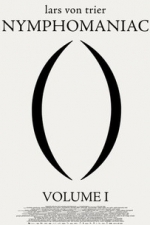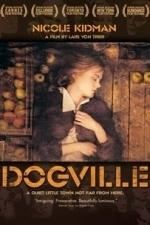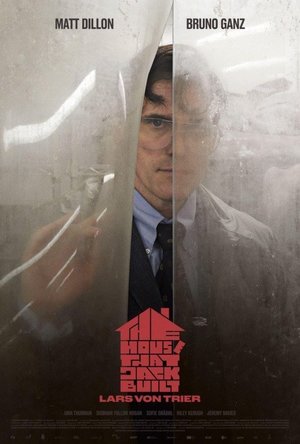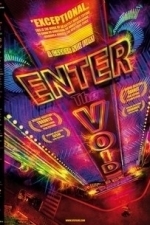Search
Andy K (10823 KP) rated Dogville (2003) in Movies
Nov 23, 2019
Humanity sucks!
The town of Dogville is a simple one. Set up in the mountains, it only has one main thoroughfare dividing its rows of homes and businesses. Its simple folk mostly keep to themselves or occasionally adjourn together. Some have a craft or livelihood which passes their time, others mostly stay to themselves contemplating their thoughts or maybe waiting for something interesting to happen.
Enter mysterious stranger, Grace.
Grace arrives in Dogville on her own without much fanfare or explanation other than mysterious gun shots heard in the distance and the brief appearance of a vehicle with a mystery occupant. It appears she might be more interesting than initial reaction. A Dogville resident, Tom, meets Grace and talks with her. He says he will discuss her situation with the locals at their next meeting and assures her they will protect Grace and allow her to stay in Dogville if they deem her worthy of friendship. She has to gain their friendship and trust within two weeks in order to do so.
As Grace starts to move within the townspeople, she discovers their interesting, eccentric personalities and tries to figure out any "work" they have either around their houses or within their businesses she can assist them with to further show her devotion to being a good person. Although after making the rounds she does not acquire much work, the members of Dogville eventually open up and welcome Grace to assist them.
Grace starts to fall for Tom who is also smitten with her.
The police eventually arrive to post a sign of the missing Grace and to attempt to gain information on her. The town is unsure what to think and some folk start to question whether Grace is being truthful. A dark and winding road eventually develops and Grace is put through some difficult travails and her will tested. Emotions run high.
Writer/director Lars Von Trier produces another truly unique film. Not as shockingly, visually jarring as some of his other work, this time the screenplay is the ultimate star producing vast emotional turmoil and shocks with words and deeds instead. All the characters presented have quite the emotional arc during the 3 hour run time of this film and it is so interesting to endure the ride. Grace really disrupts this small, mountain community and helps the folk show their eventual true personalities in all their various forms.
The physical setting of the movie is an actual "sound stage" look of the main main street strip of Dogville shown only in building outlines with minimal props or decor within. When looking from above where extensive sections of the film are shown, the audience can view almost the entire township engaged in their daily activities either among one another or by themselves. A lot of the view from the street feels very real as the camera weaves through the conversations almost like another human being.
The slow erosion of the township to Grace, her situation and the way they treat her is the crux of the film. The way human beings can be so kind to each other and then the opposite is what struck and moved me while watching Dogville. Von Trier really took the time to use the right amount of words and craft them in a loving and vicious way made the film tough to watch at times, but also captivating.
I haven't always been the biggest Nicole Kidman fan; however, her performance in this film is amazing. She cautious vulnerability and warming personality have the town be initially enamored with her, then her willingness to please erodes her relationships down the hole of darkness and betrayal. Her quirky smile and subdued emotion suits the character perfectly as you are truly trying to unravel her character's mysteries.
Really enjoyed this one.
Enter mysterious stranger, Grace.
Grace arrives in Dogville on her own without much fanfare or explanation other than mysterious gun shots heard in the distance and the brief appearance of a vehicle with a mystery occupant. It appears she might be more interesting than initial reaction. A Dogville resident, Tom, meets Grace and talks with her. He says he will discuss her situation with the locals at their next meeting and assures her they will protect Grace and allow her to stay in Dogville if they deem her worthy of friendship. She has to gain their friendship and trust within two weeks in order to do so.
As Grace starts to move within the townspeople, she discovers their interesting, eccentric personalities and tries to figure out any "work" they have either around their houses or within their businesses she can assist them with to further show her devotion to being a good person. Although after making the rounds she does not acquire much work, the members of Dogville eventually open up and welcome Grace to assist them.
Grace starts to fall for Tom who is also smitten with her.
The police eventually arrive to post a sign of the missing Grace and to attempt to gain information on her. The town is unsure what to think and some folk start to question whether Grace is being truthful. A dark and winding road eventually develops and Grace is put through some difficult travails and her will tested. Emotions run high.
Writer/director Lars Von Trier produces another truly unique film. Not as shockingly, visually jarring as some of his other work, this time the screenplay is the ultimate star producing vast emotional turmoil and shocks with words and deeds instead. All the characters presented have quite the emotional arc during the 3 hour run time of this film and it is so interesting to endure the ride. Grace really disrupts this small, mountain community and helps the folk show their eventual true personalities in all their various forms.
The physical setting of the movie is an actual "sound stage" look of the main main street strip of Dogville shown only in building outlines with minimal props or decor within. When looking from above where extensive sections of the film are shown, the audience can view almost the entire township engaged in their daily activities either among one another or by themselves. A lot of the view from the street feels very real as the camera weaves through the conversations almost like another human being.
The slow erosion of the township to Grace, her situation and the way they treat her is the crux of the film. The way human beings can be so kind to each other and then the opposite is what struck and moved me while watching Dogville. Von Trier really took the time to use the right amount of words and craft them in a loving and vicious way made the film tough to watch at times, but also captivating.
I haven't always been the biggest Nicole Kidman fan; however, her performance in this film is amazing. She cautious vulnerability and warming personality have the town be initially enamored with her, then her willingness to please erodes her relationships down the hole of darkness and betrayal. Her quirky smile and subdued emotion suits the character perfectly as you are truly trying to unravel her character's mysteries.
Really enjoyed this one.

Nymphomaniac Volume I (2014)
Movie Watch
1. "The Compleat Angler" Inspired by a fly fishing hook in the wall behind her and Seligman's love...
Lucy Buglass (45 KP) rated The House That Jack Built (2018) in Movies
Jun 20, 2019
Danish director Lars Von Trier is no stranger to controversy. He has certainly divided film fans with some praising his work and some condemning it. The House That Jack Built is his most recent creation, causing audience members at Cannes to either walk out in disgust or stand up and applaud. This seriously mixed reception caught my interest and I wanted to find out what he’d done to generate such a response.
I’ve only seen two of his previous films; Antichrist and Melancholia, the former being a film that disturbed me so much I haven’t been able to watch it a second time. Its visceral, raw and harrowing portrayal of sex, violence, and self-mutilation is something that is a thoroughly uncomfortable and unpleasant watch. Because of Antichrist, I felt nervous yet strangely excited to see what The House That Jack Built had in store for me. I was surprised, however, to discover that it is arguably his tamest film to date, with a lot of the more graphic content happening off-screen. That doesn’t mean it doesn’t have its disturbing moments, but it was a lot less visceral than I was expecting based on its recent backlash.
The film is split into five chapters labelled ‘The Incidents’ and an epilogue, detailing some of the murders that Jack carried out over a 12-year span. Two of these incidents include child abuse and female mutilation, but is presented in a much more psychologically disturbing way rather than uncomfortable close-ups and drawn out scenes that you watch from behind your hands. The House That Jack Built spends more time tapping into Jack’s own psyche than it does the atrocities he commits, with Matt Dillon really stealing the show as the titular character.
It’s also darkly funny in places, which I certainly wasn’t expecting. Dillon’s portrayal of a psychotic killer with OCD is both terrifying and amusing. He is simultaneously charming and unhinged, which is a difficult thing to pull off. He was by far my favourite thing about the film, reminiscent of so many iconic serial killers that have fascinated the general public. The film relied heavily on Jack’s character and inner thoughts so it was great to see Dillon pull it off so brilliantly.
Much like Von Trier’s previous work, The House That Jack Built features lots of symbolism throughout the narrative. In this case, it focuses heavily on religion, art and family, with Jack being challenged on all of these as he recounts the incidents. The voice challenging him is a mystery to us until the third act, where Bruno Ganz’s character is finally revealed to us. I found this reveal to be a little jarring and strange, but not unexpected from one of his films. For me, the third act is where it started to go downhill and I lost interest, which is a real shame after the strength of the first two. Despite seeing some really great analyses online, it wasn’t enough to change my own views on the way it ended. It just seemed a little too out of place for my liking.
The visual style is interesting and combines live action with animation and still images. This feels very random but in the context of this particular film, it actually works in its favour. Both Dillon and Ganz narrate over the animation and still images, giving us monologues that act as food for thought and raise questions about morality, life, death and so on. It’s an intense film in that regard and one that you have to really concentrate on in order to enjoy properly.
The House That Jack Built is a depressing, harrowing and strange film. Its blend of sadistic violence and humour makes it a truly unique horror film that seems to appeal to a very specific audience. It’s not for the faint of heart, and Jack’s misogynistic killing sprees teamed with his nihilistic outlook on life is bound to be uncomfortable for many to witness. As a case study on a serial killer it’s a fascinating watch, but out of the three films I’ve seen, this one is unfortunately the weakest in my eyes.
https://jumpcutonline.co.uk/review-the-house-that-jack-built-2018/
I’ve only seen two of his previous films; Antichrist and Melancholia, the former being a film that disturbed me so much I haven’t been able to watch it a second time. Its visceral, raw and harrowing portrayal of sex, violence, and self-mutilation is something that is a thoroughly uncomfortable and unpleasant watch. Because of Antichrist, I felt nervous yet strangely excited to see what The House That Jack Built had in store for me. I was surprised, however, to discover that it is arguably his tamest film to date, with a lot of the more graphic content happening off-screen. That doesn’t mean it doesn’t have its disturbing moments, but it was a lot less visceral than I was expecting based on its recent backlash.
The film is split into five chapters labelled ‘The Incidents’ and an epilogue, detailing some of the murders that Jack carried out over a 12-year span. Two of these incidents include child abuse and female mutilation, but is presented in a much more psychologically disturbing way rather than uncomfortable close-ups and drawn out scenes that you watch from behind your hands. The House That Jack Built spends more time tapping into Jack’s own psyche than it does the atrocities he commits, with Matt Dillon really stealing the show as the titular character.
It’s also darkly funny in places, which I certainly wasn’t expecting. Dillon’s portrayal of a psychotic killer with OCD is both terrifying and amusing. He is simultaneously charming and unhinged, which is a difficult thing to pull off. He was by far my favourite thing about the film, reminiscent of so many iconic serial killers that have fascinated the general public. The film relied heavily on Jack’s character and inner thoughts so it was great to see Dillon pull it off so brilliantly.
Much like Von Trier’s previous work, The House That Jack Built features lots of symbolism throughout the narrative. In this case, it focuses heavily on religion, art and family, with Jack being challenged on all of these as he recounts the incidents. The voice challenging him is a mystery to us until the third act, where Bruno Ganz’s character is finally revealed to us. I found this reveal to be a little jarring and strange, but not unexpected from one of his films. For me, the third act is where it started to go downhill and I lost interest, which is a real shame after the strength of the first two. Despite seeing some really great analyses online, it wasn’t enough to change my own views on the way it ended. It just seemed a little too out of place for my liking.
The visual style is interesting and combines live action with animation and still images. This feels very random but in the context of this particular film, it actually works in its favour. Both Dillon and Ganz narrate over the animation and still images, giving us monologues that act as food for thought and raise questions about morality, life, death and so on. It’s an intense film in that regard and one that you have to really concentrate on in order to enjoy properly.
The House That Jack Built is a depressing, harrowing and strange film. Its blend of sadistic violence and humour makes it a truly unique horror film that seems to appeal to a very specific audience. It’s not for the faint of heart, and Jack’s misogynistic killing sprees teamed with his nihilistic outlook on life is bound to be uncomfortable for many to witness. As a case study on a serial killer it’s a fascinating watch, but out of the three films I’ve seen, this one is unfortunately the weakest in my eyes.
https://jumpcutonline.co.uk/review-the-house-that-jack-built-2018/

Nymphomaniac Volume II (2014)
Movie Watch
Joe becomes annoyed with Seligman, accusing him of overlooking the severity of her lost sexuality to...
Andy K (10823 KP) rated Enter the Void (Soudain le vide) (2010) in Movies
Oct 13, 2019
WOW!
Not many modern filmmakers garner such a reputation for being controversial and are well deserved. Lars von Trier and Ari Aster come to mind, but I am sure there are others. They pull no punches with their work, so most provoke extreme reactions either love or hate. Maybe also appreciate the art form or what they are trying to say, but do not enjoy the extreme sex or violence or shock value from many of their scenes.
From the psychedelic opening credits (which are the complete film credits by the way, meaning no end credits at all) this film grabs your attention and should immediately realize what you are about to watch is going to be different, exciting, revolting and most of all unique in every way from most movies you have seen in your life until now.
The film focuses on the relationship between Oscar and Linda, a brother and sister living in Japan when tragedy strikes. Oscar goes to meet a friend for a drug deal only to have something go very wrong. For some reason, the police are present and pursue Oscar to the bathroom where he tries to dispense the drugs eliminating the evidence down the facilities. Shortly after, Oscar is shot in the chest and dies on the bathroom floor.
It seems as if Oscar's "soul" leaves his body and begins a hallucinatory journey interacting with his former friends, acquaintances and sister in a spiritual and mind blowing way to help make him and the audience understand the events which led to his death.
The siblings have had a rough life including the horrible death of their parents in an automobile accident when they were young. They were in the back seat as well, so not only witnessed the physical and emotional trauma, but also had to endure the subsequent separation from each other through foster care having to grow up without each other. Before they were separated, they made a blood pact and said they would always be there for each other no matter what.
Linda works at a dance/strip club and the forlorn about the death of her brother, but continues her job duties including dancing and having sex. She gets pregnant, then deals with the repercussions of the act. She becomes increasingly despondent with her life and wishes her brother was still with her.
Oscar's spirit meanders through the lives of his former life watching and understanding the emotions of those left on Earth.
The film is hard to explain and therefore maybe hard to understand as well. This seems to be one of those movies that is not only the words that are spoken, but the emotions that are portrayed and not said aloud. Whatever you believe spiritually about the soul and reincarnation, this film is not here to change your religious beliefs. It is shown in "first person" most of the time, so you interact with the characters of Oscar's life just as he is.
The use of neon colors both on the exterior cityscape of Japan and interior shots o the dance club are gorgeous and reminded me of what the world would appear as if life used a blacklight. The sequences of drug use could not be described as anything else other than living artwork. The rainbow kaleidoscope of the "trip" were reminiscent of "2001: A Space Odyssey" and I read afterwards which is where Noe drew some of his inspiration.
Undoubtedly, the multitude of graphic sex scenes and shocking imagery will turn many off as some of it is pretty extreme, but I feel suits this film symbiotically and perfectly. In fact, the second half of the film is more style than substance (which you could probably say for a lot of Noe's films), but somehow you don't mind since you are along for the ride and enjoy the spectacle anyways.
After reading about the film after my viewing, I discovered there is a "director's cut" including around 20 minutes of additional scenes bring the running time to over 2 1/2 hours.
It looks like I'll be getting the Blu-Ray and watching again in a few weeks!
From the psychedelic opening credits (which are the complete film credits by the way, meaning no end credits at all) this film grabs your attention and should immediately realize what you are about to watch is going to be different, exciting, revolting and most of all unique in every way from most movies you have seen in your life until now.
The film focuses on the relationship between Oscar and Linda, a brother and sister living in Japan when tragedy strikes. Oscar goes to meet a friend for a drug deal only to have something go very wrong. For some reason, the police are present and pursue Oscar to the bathroom where he tries to dispense the drugs eliminating the evidence down the facilities. Shortly after, Oscar is shot in the chest and dies on the bathroom floor.
It seems as if Oscar's "soul" leaves his body and begins a hallucinatory journey interacting with his former friends, acquaintances and sister in a spiritual and mind blowing way to help make him and the audience understand the events which led to his death.
The siblings have had a rough life including the horrible death of their parents in an automobile accident when they were young. They were in the back seat as well, so not only witnessed the physical and emotional trauma, but also had to endure the subsequent separation from each other through foster care having to grow up without each other. Before they were separated, they made a blood pact and said they would always be there for each other no matter what.
Linda works at a dance/strip club and the forlorn about the death of her brother, but continues her job duties including dancing and having sex. She gets pregnant, then deals with the repercussions of the act. She becomes increasingly despondent with her life and wishes her brother was still with her.
Oscar's spirit meanders through the lives of his former life watching and understanding the emotions of those left on Earth.
The film is hard to explain and therefore maybe hard to understand as well. This seems to be one of those movies that is not only the words that are spoken, but the emotions that are portrayed and not said aloud. Whatever you believe spiritually about the soul and reincarnation, this film is not here to change your religious beliefs. It is shown in "first person" most of the time, so you interact with the characters of Oscar's life just as he is.
The use of neon colors both on the exterior cityscape of Japan and interior shots o the dance club are gorgeous and reminded me of what the world would appear as if life used a blacklight. The sequences of drug use could not be described as anything else other than living artwork. The rainbow kaleidoscope of the "trip" were reminiscent of "2001: A Space Odyssey" and I read afterwards which is where Noe drew some of his inspiration.
Undoubtedly, the multitude of graphic sex scenes and shocking imagery will turn many off as some of it is pretty extreme, but I feel suits this film symbiotically and perfectly. In fact, the second half of the film is more style than substance (which you could probably say for a lot of Noe's films), but somehow you don't mind since you are along for the ride and enjoy the spectacle anyways.
After reading about the film after my viewing, I discovered there is a "director's cut" including around 20 minutes of additional scenes bring the running time to over 2 1/2 hours.
It looks like I'll be getting the Blu-Ray and watching again in a few weeks!


